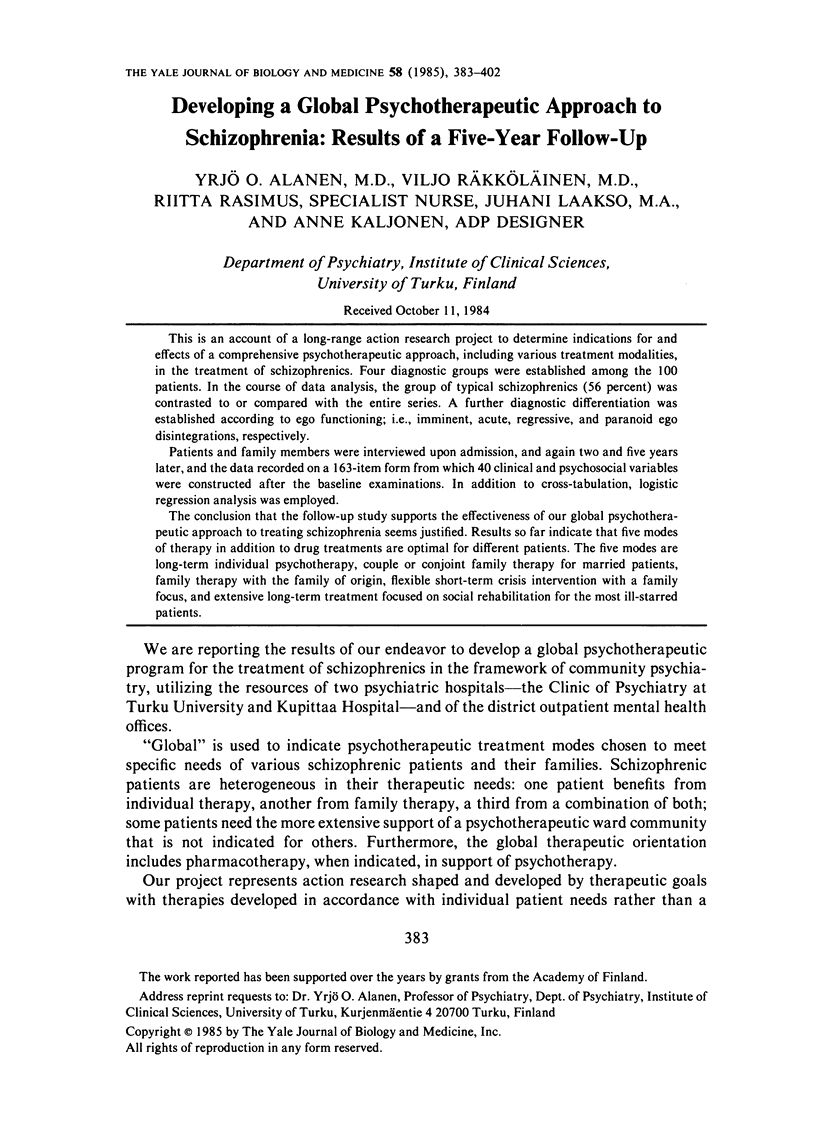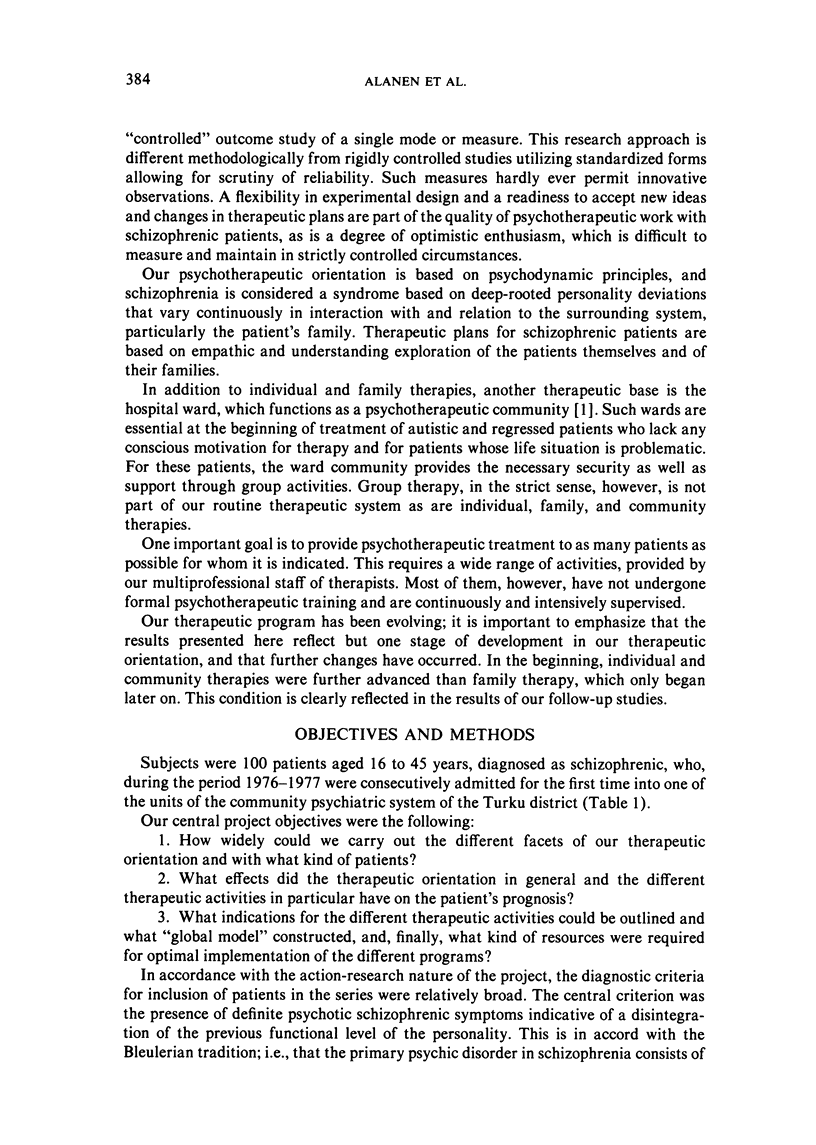Abstract
This is an account of a long-range action research project to determine indications for and effects of a comprehensive psychotherapeutic approach, including various treatment modalities, in the treatment of schizophrenics. Four diagnostic groups were established among the 100 patients. In the course of data analysis, the group of typical schizophrenics (56 percent) was contrasted to or compared with the entire series. A further diagnostic differentiation was established according to ego functioning; i.e., imminent, acute, regressive, and paranoid ego disintegrations, respectively. Patients and family members were interviewed upon admission, and again two and five years later, and the data recorded on a 163-item form from which 40 clinical and psychosocial variables were constructed after the baseline examinations. In addition to cross-tabulation, logistic regression analysis was employed. The conclusion that the follow-up study supports the effectiveness of our global psychotherapeutic approach to treating schizophrenia seems justified. Results so far indicate that five modes of therapy in addition to drug treatments are optimal for different patients. The five modes are long-term individual psychotherapy, couple or conjoint family therapy for married patients, family therapy with the family of origin, flexible short-term crisis intervention with a family focus, and extensive long-term treatment focused on social rehabilitation for the most ill-starred patients.
Full text
PDF



















Selected References
These references are in PubMed. This may not be the complete list of references from this article.
- Leff J., Vaughn C. The role of maintenance therapy and relatives' expressed emotion in relapse of schizophrenia: a two-year follow-up. Br J Psychiatry. 1981 Aug;139:102–104. doi: 10.1192/bjp.139.2.102. [DOI] [PubMed] [Google Scholar]
- Mosher L. R., Keith S. J. Psychosocial treatment: individual, group, family, and community support approaches. Schizophr Bull. 1980;6(1):10–41. doi: 10.1093/schbul/6.1.10. [DOI] [PubMed] [Google Scholar]
- Stephens J. H. Long-term prognosis and followup in schizophrenia. Schizophr Bull. 1978;4(1):25–47. doi: 10.1093/schbul/4.1.25. [DOI] [PubMed] [Google Scholar]
- Strauss J. S., Carpenter W. T., Jr Prediction of outcome in schizophrenia. III. Five-year outcome and its predictors. Arch Gen Psychiatry. 1977 Feb;34(2):159–163. doi: 10.1001/archpsyc.1977.01770140049005. [DOI] [PubMed] [Google Scholar]
- WINNICOTT D. W. The theory of the parent-infant relationship. Int J Psychoanal. 1960 Nov-Dec;41:585–595. [PubMed] [Google Scholar]
- Watt D. C., Katz K., Shepherd M. The natural history of schizophrenia: a 5-year prospective follow-up of a representative sample of schizophrenics by means of a standardized clinical and social assessment. Psychol Med. 1983 Aug;13(3):663–670. doi: 10.1017/s0033291700048091. [DOI] [PubMed] [Google Scholar]



